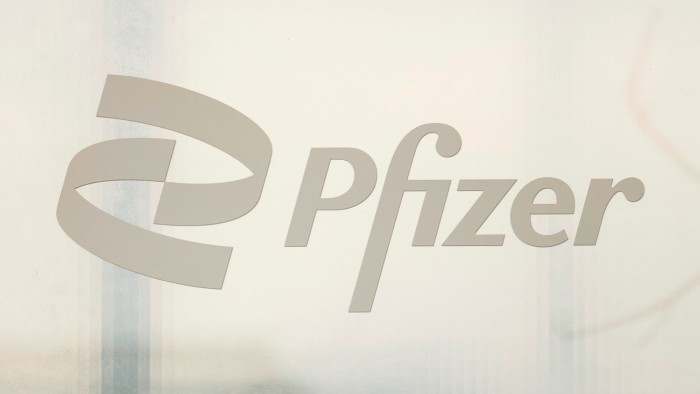Unlock the Editor’s Digest for free
Roula Khalaf, Editor of the FT, selects her favourite stories in this weekly newsletter.
Pfizer will halt its development of a weight-loss drug that was being closely watched by investors, in a significant blow to the US pharmaceutical group.
The company said on Monday that it would stop the development of the treatment, known as danuglipron, after a patient in one of its studies “experienced potential drug-induced liver injury”.
The New York based-drugmaker had hoped the daily pill would allow it to break into the booming obesity treatment market, after sales of its vaccine and other coronavirus-related products fell following the pandemic.
Rivals Eli Lilly and Novo Nordisk are already marketing a new class of blockbuster weight-loss drugs, which are given as weekly injections. Analysts forecast that the market could reach $100bn by the end of the decade as oral versions are approved.
The active ingredient in Pfizer’s pill is the compound danuglipron, a glucagon-like peptide, or GLP-1, similar to those used by Novo Nordisk and Eli Lilly in their groundbreaking anti-obesity offerings.
The pharmaceutical group said a trial patient’s “potential drug induced liver injury” was resolved following the discontinuation of the drug. “After a review of the totality of information, including all clinical data generated to date for danuglipron and recent input from regulators, Pfizer has decided to discontinue development of the molecule,” the company added.
Activist investor Starboard Value, which has a large stake in Pfizer, heaped pressure on the drugmaker late last year when it accused management of misspending the company’s Covid-19 windfall and wrecking at least $20bn of shareholder value.
At a conference in October, Starboard’s chief executive called on the Pfizer board to “hold management accountable”, saying: “They can’t follow Einstein’s definition of insanity and continue to do the same thing over and over again and expect a different result.”
Pfizer’s chief executive Albert Bourla argued in response that the pharmaceutical company had already begun a turnaround. Bourla also defended Pfizer’s $43bn acquisition more than a year ago of cancer drugmaker Seagen as “well-invested capital” which “will demonstrate significant value for shareholders”.
The group’s share price has declined by more than 17 per cent so far this year, according to LSEG data, giving it a market capitalisation on Monday of $124bn. They were little changed in pre-market trading in New York.
The S&P 500 pharmaceuticals index, which tracks large US-listed drugmakers, is down 7 per cent this year.
“Cardiovascular and metabolic diseases including obesity remain important areas of unmet medical need, and we plan to continue applying our global capabilities to advance a pipeline of investigational treatments that have the potential to fill critical gaps in patient care,” said Chris Boshoff, chief scientific officer and research and development president at Pfizer.
Pfizer’s first-quarter results, which will be released at the end of April, will also be pored over by investors hoping to find evidence the company is overcoming its challenges.
Read the full article here

